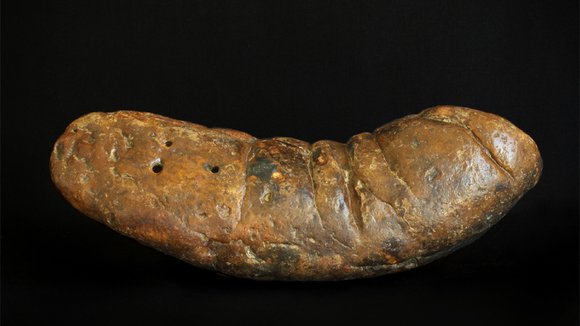Capital of your microbiome
You are full of microbes. A hundred thousand billion. More than your own cells. And the capital of this so-called microbiome is your intestines. Your intestinal microbes are there for a reason. For example, they are indispensable for the digestion of your diet and the support of your immune system. The diversity of gut microbes is unique for each individual. In fact, no one else on Earth has the same composition of intestinal microbes. So it is more unique than your fingerprint. Poo consists of about 50% intestinal microbes and is therefore an excellent means of determining the microbial diversity in your intestines.
Malleable but vulnerable
Many microbes are passed on from generation to generation, and your personal diversity is quite stable. Yet your so-called gut microbiota can radically change within days to months after certain events, such as immigration to another country or antibiotic treatment, but also a Western (low-fibre) diet. And while this malleability offers a potential avenue for treating all sorts of diseases related to your microbiota, it's also a vulnerability.
Primal poo
Your gut microbes are therefore extremely important for your health. By learning more about the gut microbes that we have lost since our ancestors, we could gain insight into the relationship between those microbes, our behaviour and our health. Researchers from the US and Canada are turning to a 'microbial time machine': primordial poo (or officially paleofaeces). Using DNA, they examined the microbial diversity in 1,000-2,000-year-old human faecal samples from the Southwest of the US and Mexico. This gave them valuable insights into the gut microbiota from a time before industrialization.
Divergent
The researchers found 181 species of intestinal microbes in the paleofaeces, 39% of which were new to science. They compared these to the poo of modern people with industrialized and non-industrialized lifestyles. In the primeval poo, they found many species, including Treponema succinifaciens, which have been lost in industrial populations but are still common in non-industrialized intestines. They also found the opposite. This shows that non-industrialized microbiomes are more similar to the microbiomes of our ancestors, and that the gut microbiota of industrialized humans has started to diverge.
From insects to antibiotics
The researchers also looked at the genes of the microbes in the paleofaeces. They discovered many genes that code for the breakdown of the molecule chitin. This is a component of the exoskeletons of insects. This confirms the assumption that insects were a regular part of the diet of our ancestors.
In addition, the microbes in the primal poo appear to contain almost no genes for antibiotic resistance, while our intestinal microbes are full of them. This shows that our gut microbes - a reflection of our lifestyle in the West - are becoming more and more 'unnatural'. The researchers hope their results will make us think about how we live and interact with nature. Because even though we don't behave according to it, we are still part of nature.
Source
Wibowo et al., 2021. Reconstruction of ancient microbial genomes from the human gut.

